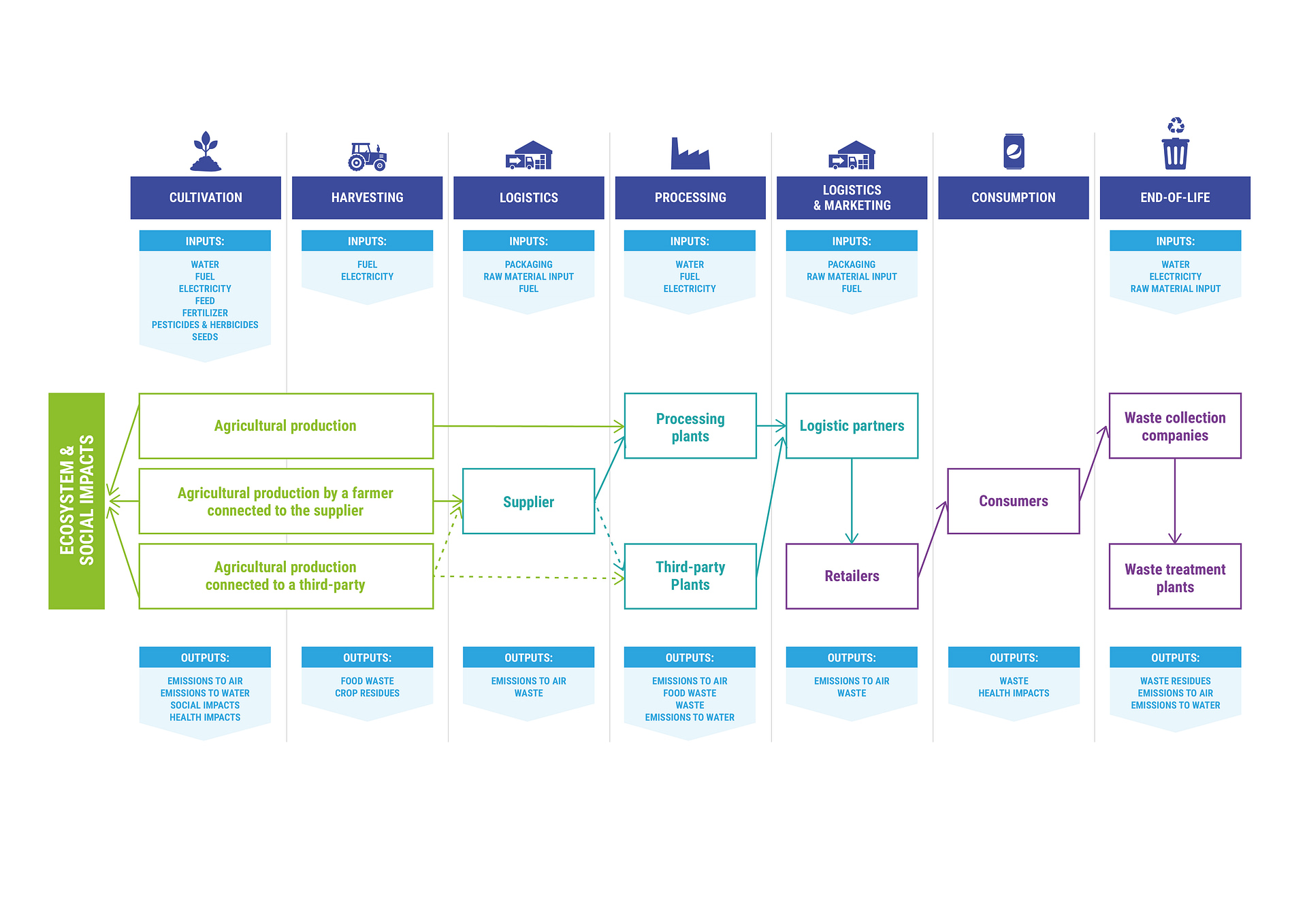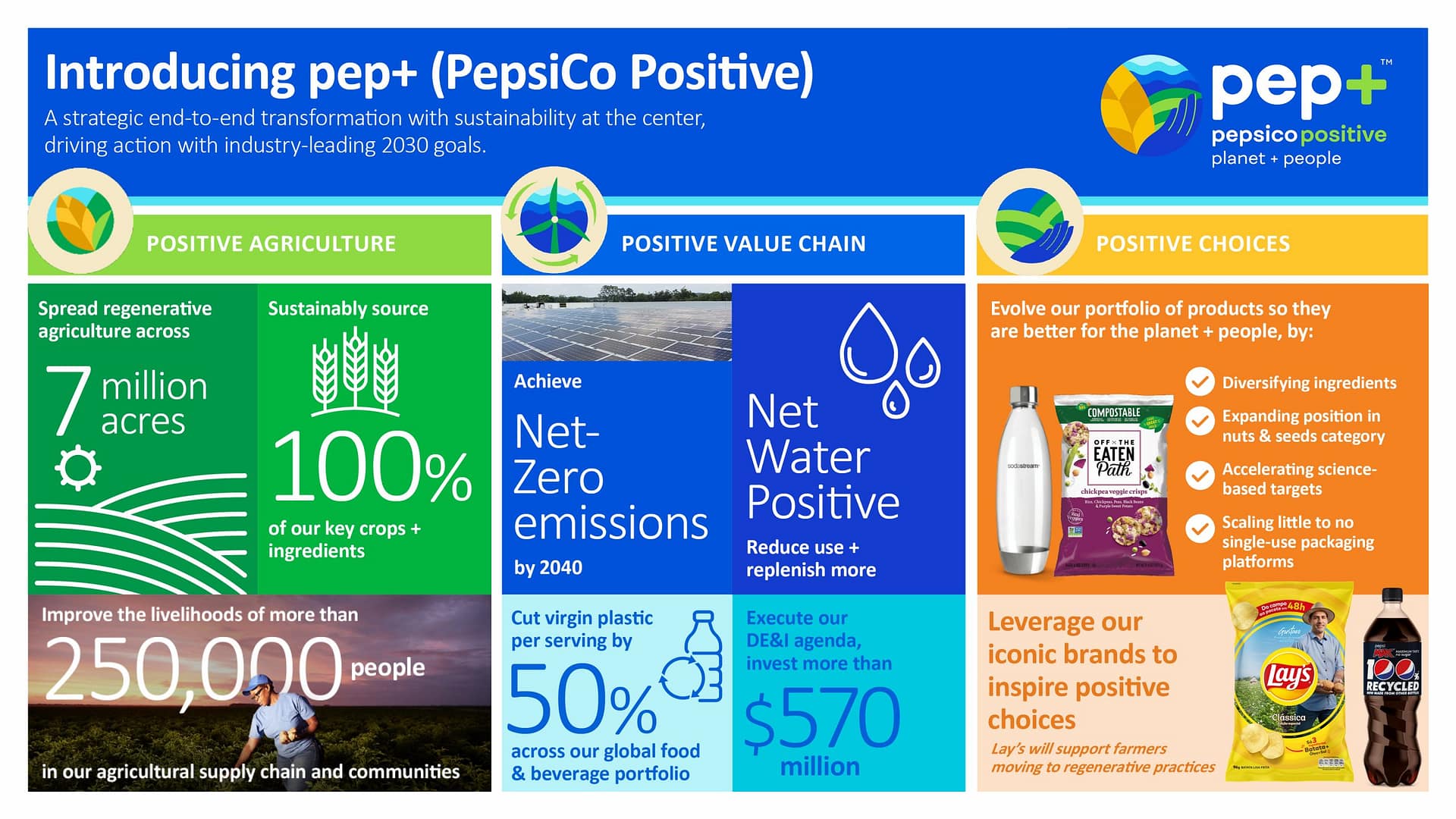Sustainability strategy for PepsiCo
A foundational assessment of PepsiCo to inform a transformational strategy.
This project introduced a new way to measure and reduce the impact of PepsiCo’s food and drink production on water, biodiversity, and land degradation in Europe. The methodology in this study provided a holistic approach to data collection and intervention recommendations that can be replicated to other companies within the food industry.
- Partners: SYSTEMIQ, Leaders Quest
- Clients: PepsiCo, Inc.
- Date: February 2020 – November 2021
Pressures on nature
Global population growth and the demand for food production have increased the pressure on nature and resources. Sustainable agriculture practices offer solutions to many of these environmental challenges we face today, such as water scarcity and biodiversity loss. PepsiCo’s commitment to address its own impact on nature and operate within the planetary boundaries thus requires a transformational change in its business model.
The environment at the forefront of PepsiCo’s business
A team of researchers from Metabolic, SYSTEMIQ, and Leaders Quest worked with Pepsico to address the company’s impacts on water, biodiversity, and land degradation in Europe. The team collected valuable data needed to evaluate each commodity landscape and then identified interventions that would help meet PepsiCo’s sustainability goals.
Restoring our planet
We developed a framework that PepsiCo can use to collect data, identify where additional data collection is needed, and locate priority areas in the supply chain to engage with farmers and suppliers. This framework can be used by other companies in the future. To efficiently address the environmental impacts of a business, this project showed that high-level field data is crucial to set science-based targets and interventions.
PepsiCo has committed to the following through its pep+ (PepsiCo Positive) program:
- Positive Agriculture:
- Commitment to regenerative agriculture practices across 7 million acres (the equivalent of its agriculture footprint), and improve the livelihoods of 250,000 people across its agricultural supply chain
- Positive value chain
- Net-zero emissions by 2040
- Net water positive by 2030
- Reduce virgin plastic by 50% across its portfolio by 2030
- Design for 100% of packaging to be recyclable, compostable, biodegradable, or reusable by 2025
- Commitment of $570 million to diversity, equity, and inclusion initiatives
- Positive choices:
- Scale new business models that require little to no single-use packaging, e.g., its SodaStream business
- Use ingredients aligned to better planetary and nutritional health, including legumes, grains, and plant-based proteins
- Commitment to transparent environmental labeling on key products, leading the charge on Foundation Earth with Tesco and Danone
- The pep+ (PepsiCo Positive) program will help guide the business to operate within planetary boundaries and inspire positive change for the planet and people.
- To help ensure access to water, The Nature Conservancy and PepsiCo partnered in at-risk watersheds around the world to conserve and protect freshwater.






Director
ANY QUESTIONS?
For more information about this project, please get in touch.





